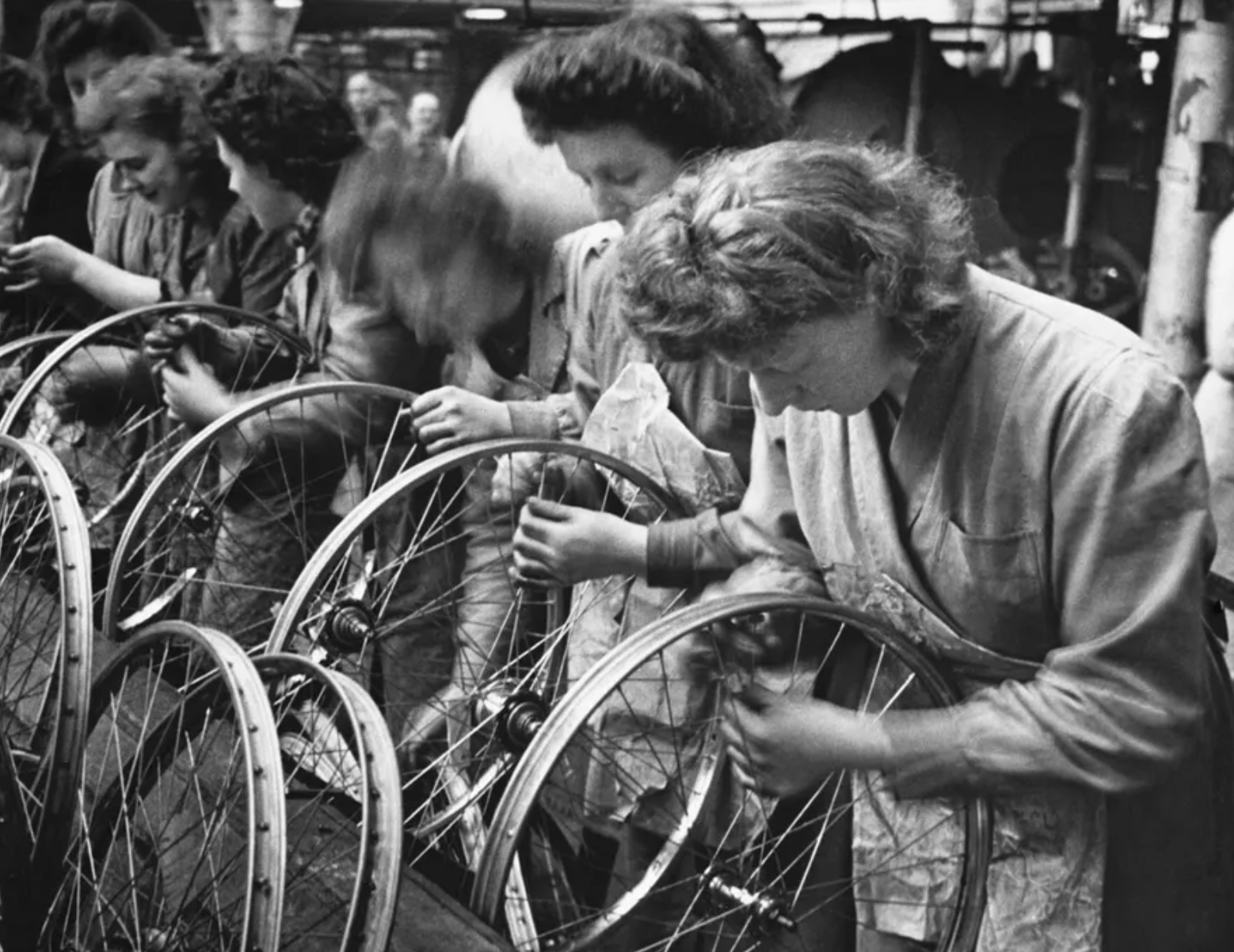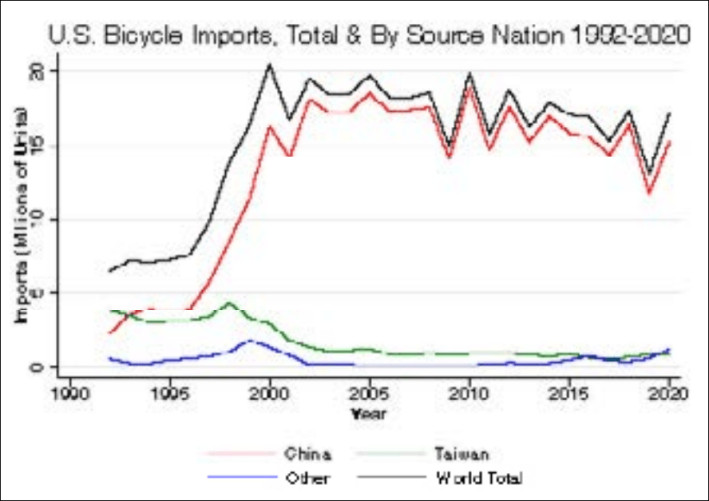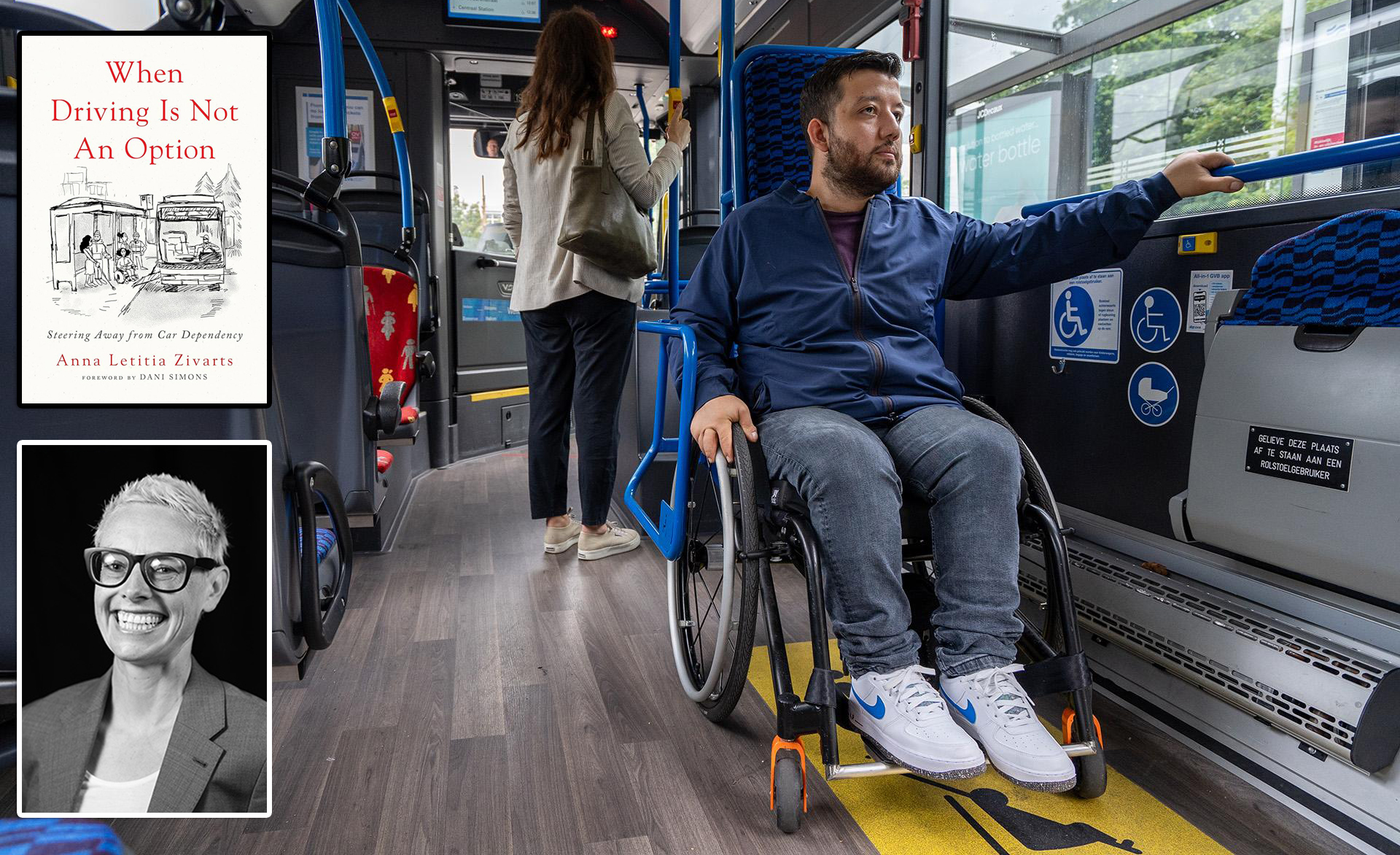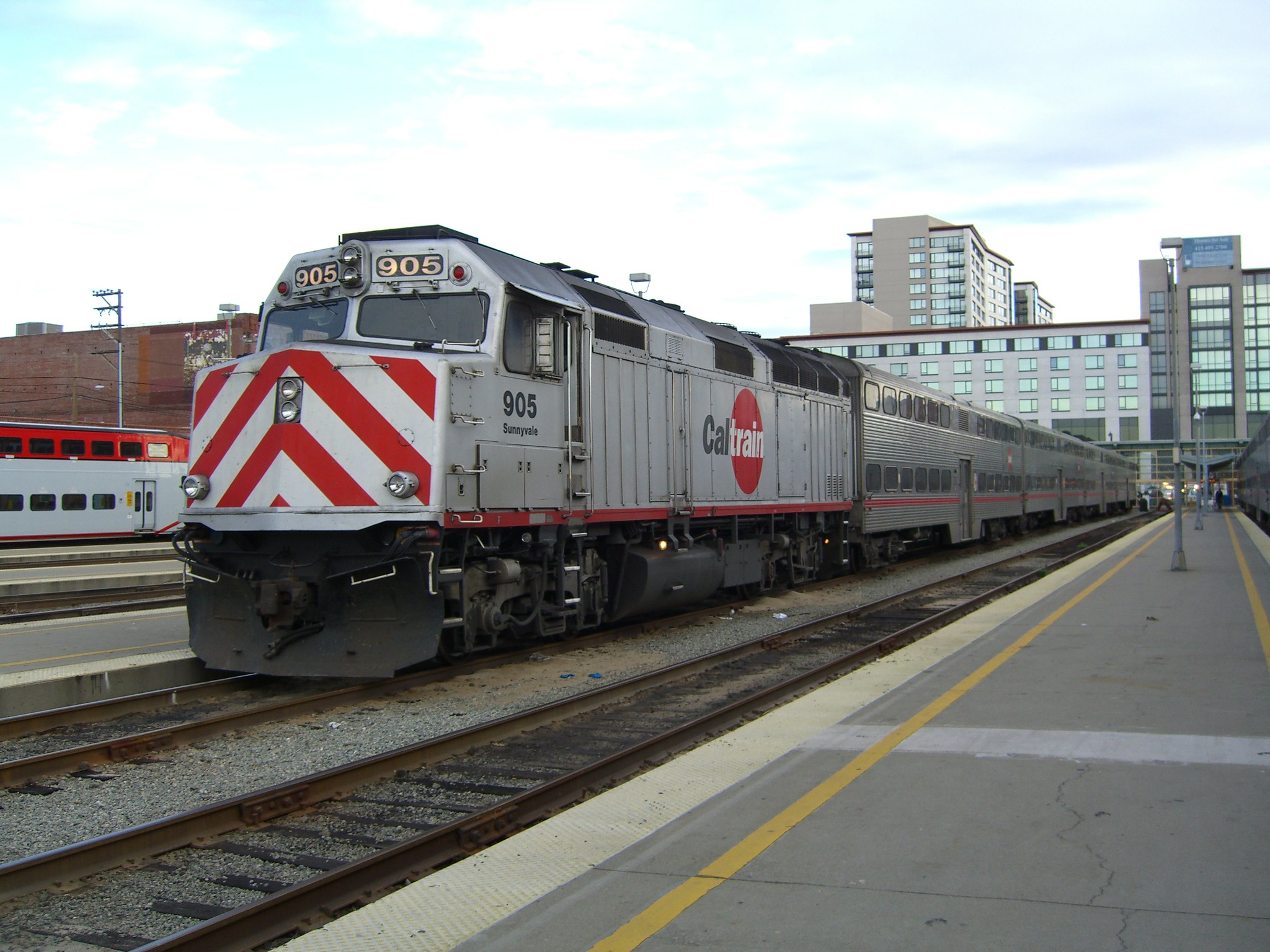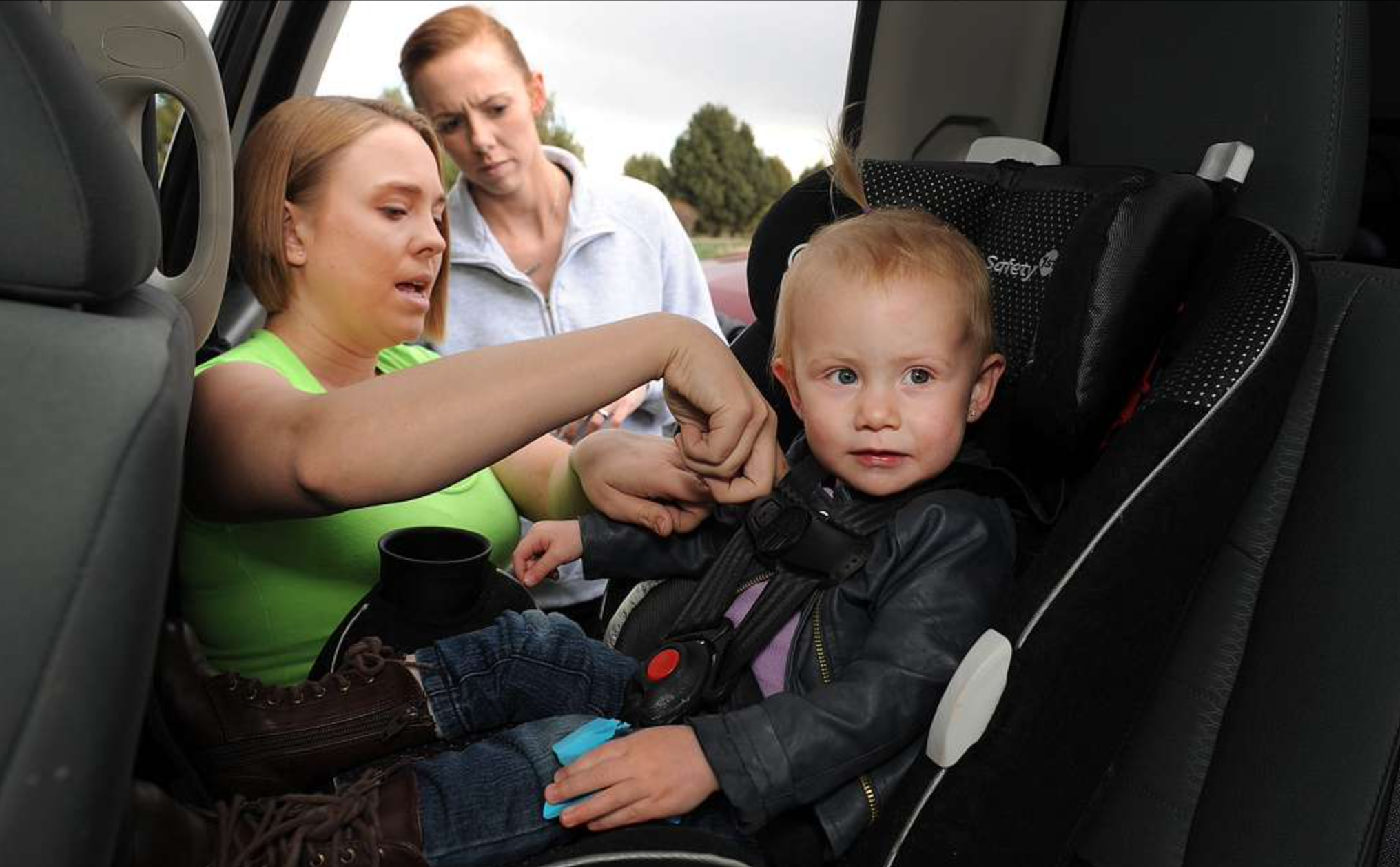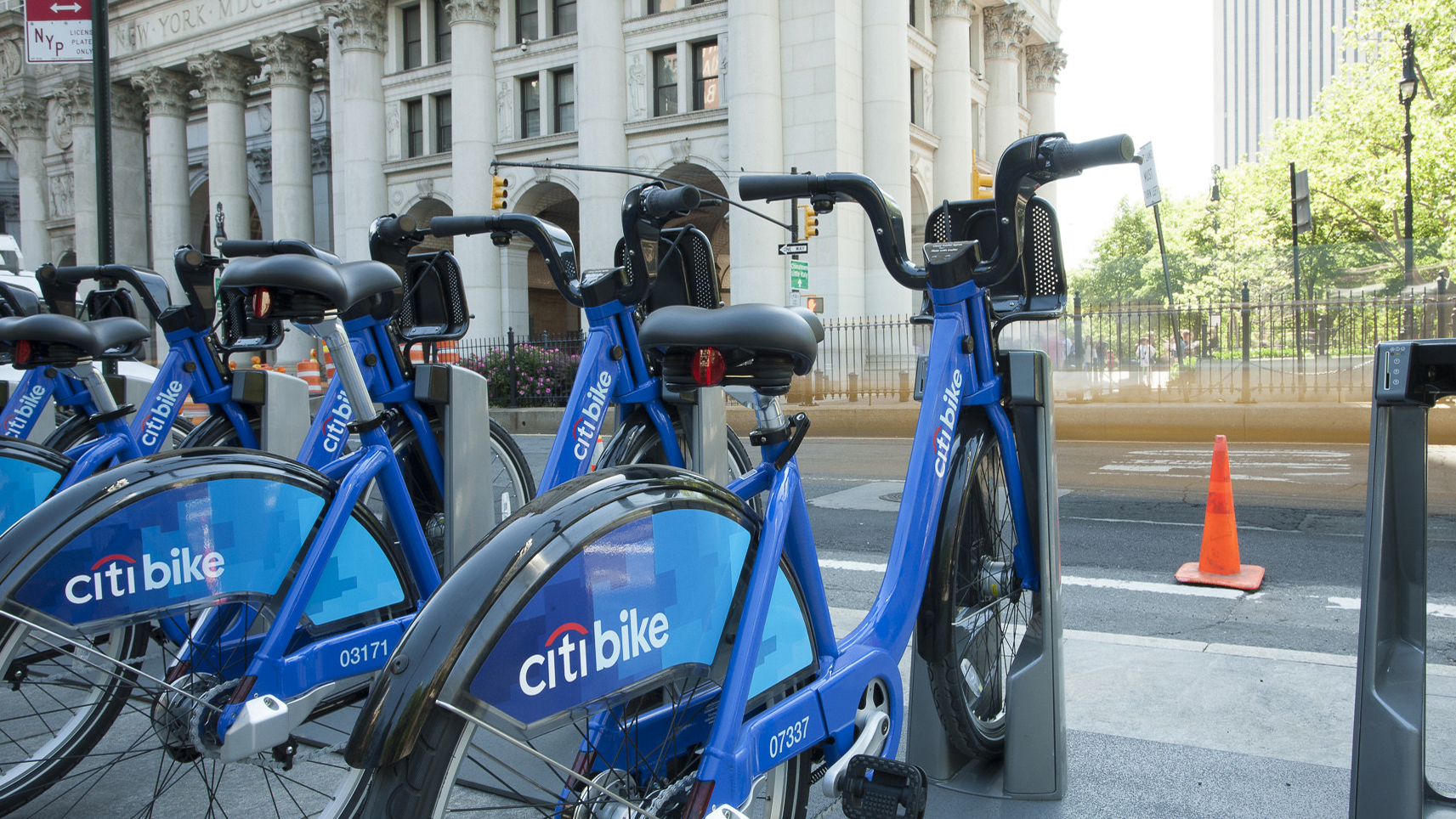Report: To Sustain the Cycling Boom, U.S. Must Build Up American Bike Manufacturing
5:47 PM EST on December 13, 2021

America's Covid-induced cycling boom is being stifled by massive over-reliance on overseas bike manufacturers — and the nation needs to follow Europe's example and re-shore this essential industry to achieve social and environmental impacts far beyond the shelves of local bike shops, a new report argues.
Economists for the bipartisan think tank Coalition for a Prosperous America revealed that a stunning 97.1 percent of bikes sold domestically today are imported from other countries, with China alone accounting for 86.3 percent of the U.S. market.
And as the bike shortages of the Covid-19 pandemic recently revealed, the absence of a robust domestic bike industry can itself become a barrier to getting Americans riding — not to mention keeping them on two wheels when their bikes break. Experts say that supply chain slowdowns between China and the U.S. compounded the challenges of surging demand as coronavirus-wary Americans rushed to replace their shared transit trips and gym memberships with bicycle purchases, sending the market surging 62 percent between January and October, 2020 compared to the same period the year prior. Even as lockdown orders eased into 2021, demand for bikes kept up roughly the same pace, leaving would-be cyclists waiting months for even the simplest bike components to arrive at shops, nevermind fully-built cycles.
"Any time we become entirely dependent on one country for any product, we’re putting the future of that industry at risk," said Jeff Ferry, chief economist for the organization and the lead author of the report. "If we really want to be conscientious about the social environment and the terrestrial environment, we should make the things we buy closer to home, whenever we have the ability — and when it comes to bikes, we do."
Ferry emphasizes that even when the supply chain isn't under strain, there are still important reasons to support domestic bike production.
Like all goods imported from the other side of the planet, most bikes sold in the U.S take a carbon-intensive trip halfway around the world before they reach their riders, unnecessarily undercutting the environmental impacts of a green vehicle that were largely made domestically until countries such as Taiwan cornered the market in the 1970s. For bikes made in China, a further 1.5 million tons of carbon dioxide are emitted annually during the country's notoriously dirty steel and aluminum production processes, which are necessary to build frames and other components.
"How can you say you’re cycling to save the environment when your bike is made of dirty Chinese steel that’s manufactured using a coal-intensive process?" Ferry added.
He also stressed that the labor practices behind Chinese-made bikes aren't something most progressives would be keen to support — if they knew about them. The country's efforts to seize the global steel market have lead to billions in government subsidies to the Chinese bike manufacturers since the 1990s, forcing workers to increase the output of steel-frame bikes exponentially and driving nearly all U.S. manufacturers out of business and tempting the largest American bike companies to outsource production abroad.
Meanwhile, wages for workers in China plunged to as little as 25 cents an hour at their lowest, and haven't risen much since. The report says that if those same jobs were re-shored to the U.S., the vast majority will be concentrated in "depressed U.S. regions, and many jobs will go to people of color, at wage and benefit packages superior to most of the jobs currently available in those regions." An estimated 10,000 to 13,000 workers would benefit, in both direct and indirect industries.
"China sets targets for its manufacturers to increase production by a 20, 30 percent a year, every year, and they say, 'Don’t worry about profits, just do it, because we need industries to soak up steel and aluminum,'" said Ferry. "So you as a result, you get a lot of companies that make poor-quality, often unsafe, vehicles, and they’re making a lot of them. ... China’s only comparative advantage is its willingness to build dirty products with the support of government subsidies, while paying workers the equivalent of two dollars an hour."
Cheaply made bikes may have consequences for U.S. ridership trends, too. Some experts say that poor-quality bikes, some of which last as little as four months, can deter new riders from sticking with cycling when their bikes break — and in the case of electric-assist bikes, inexpensive models can even endanger riders when their cheaply-made batteries explode. Chinese-made batteries have been specifically called out by safety advocates for failing to comply with industry-wide safety standards established by Underwriter Laboratories.
The @FDNY says e-bike batteries are exploding and causing fatal fires. So does @NYCMayor have a plan? (Hint: No.) @Julcuba has the story: https://t.co/0oYRqibKeL
— Streetsblog New York (@StreetsblogNYC) September 9, 2021
Safety concerns surrounding cheap imported bikes may be mounting with the introduction of pedal-assist technology. That same e-bike revolution, though, may still provide the perfect opportunity to speed up American manufacturing efforts — particularly if government catches up.
Ferry points out that under the impending Build Back Better Act, consumers would receive an additional credit for purchasing an American- and union-made electric car — a provision he says should be extended to the e-bike credit included in the same bill. Production credits could also be offered to U.S. manufacturers of both electric and acoustic bikes, in tandem with Small Business Administration loans to U.S. bike builders, temporary tariff relief on the handful of components that can't be made affordably in America right now like spokes and saddles, and tax credits to stimulate the domestic production of those parts in the long run. (Critically, he also recommends robust investment in bike-specific street infrastructure to keep riders safe on all those new bikes and make riding a practical reality for people of all ages and levels of ability.)
Many of those strategies have already been tried to great success by countries in the European Union, which has wrested much of its bike market back from Asia since the early 1990s — a shift that's accelerating as the continent's e-bike industry booms. A whopping 85 percent of e-bikes sold in the EU last year were made in the EU, which is almost the same share of the total U.S. bike market that's currently controlled by China.
Ferry says that mimicking Europe's approach could make safe, high-quality bikes more accessible in America, and that prices will go down as production scales up. And he also says that politicians are already beginning to take notice.
"Of all the re-shoring initiatives we're working on at CPA, I think the bike industry has the best chance," he adds. "There’s interest in the Biden administration, there's interest in Congress, and there are U.S. manufacturers eager to get started. With the rise of the e-bike and the riot of innovation surrounding it, we’re at a real turning point. Everything happening in Europe could be happening here right now if we act now to re-shore this industry."
Kea Wilson is editor of Streetsblog USA. She has more than a dozen years experience as a writer telling emotional, urgent and actionable stories that motivate average Americans to get involved in making their cities better places. She is also a novelist, cyclist, and affordable housing advocate. She previously worked at Strong Towns, and currently lives in St. Louis, MO. Kea can be reached at kea@streetsblog.org or on Twitter @streetsblogkea. Please reach out to her with tips and submissions.
Read More:
Stay in touch
Sign up for our free newsletter
More from Streetsblog USA
The 30% of Non-Driving Americans Must Form a Movement: A Conversation with Anna Zivarts
"At the end of the day, there are going to be folks who still can't drive and can't afford to drive — and there are still going to be a lot of us."
Thursday’s Headlines Fight a Suburban War
The way Politico lays out the battle lines, it's not just drivers versus transit users, but urban transit users versus suburban ones.
How Car-Centric Cities Make Caring For Families Stressful — Particularly For Women
Women do a disproportionate share of the care-related travel their households rely on — and car-focused planning isn't making matters easier.
Wednesday’s Headlines Build Green
A new bill dubbed "Build Green" would replace many of the climate-friendly elements Sen. Joe Manchin insisted on stripping from the Inflation Reduction Act.
E-Bikes and Creating Financially Sustainable Bike Share Programs
The number of customers using bike share in the U.S. and Canada is now at an all-time high thanks to e-bikes.
